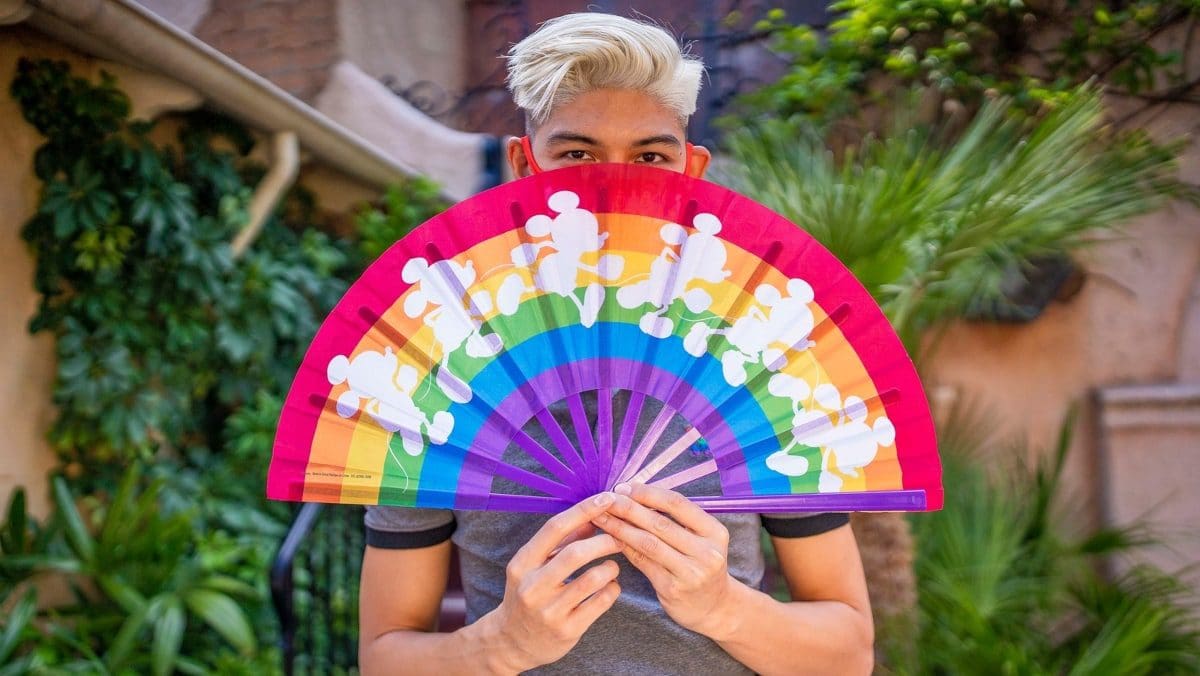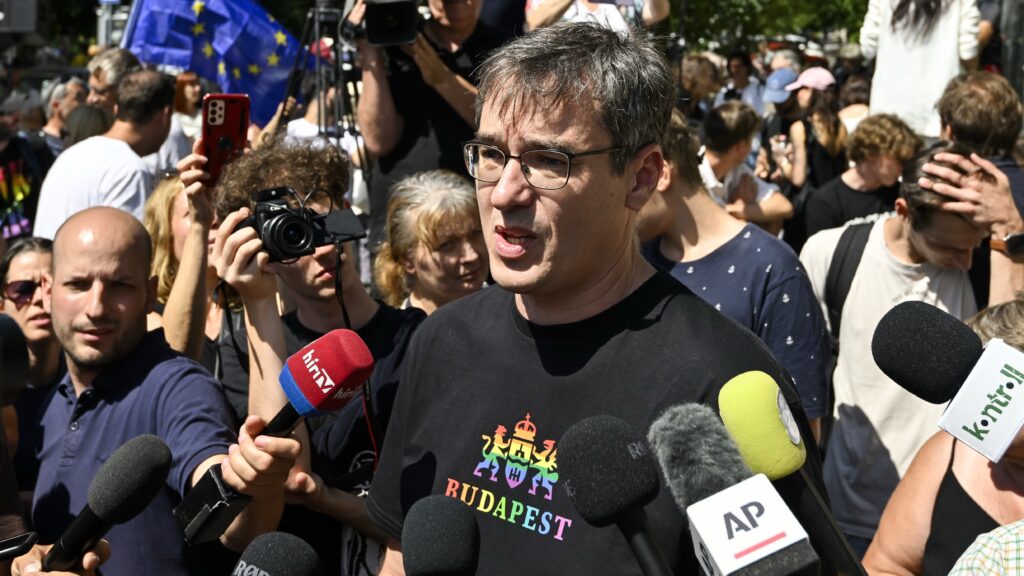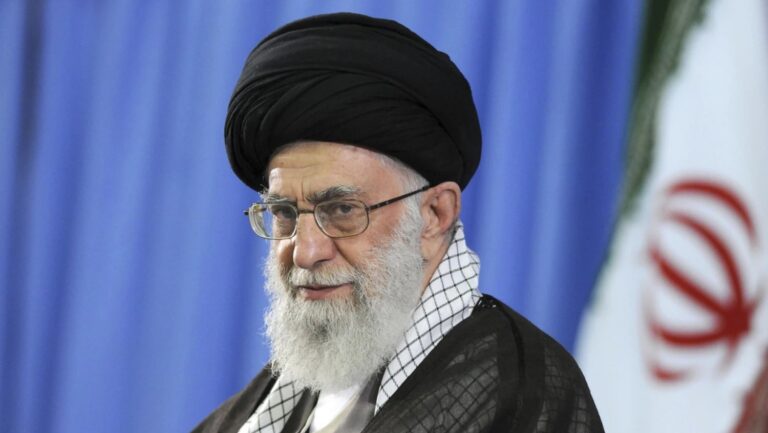Is there anyone more American than Mickey Mouse? For decades the Walt Disney Company’s mascot has been an icon of American culture known around the world. The shocking fact that Mickey has now embraced left-wing cultural militancy, and has become a ‘woke’ Social Justice Warrior, tells us something important about the madness that has engulfed the United States in this time of Cultural Revolution.
Using internal Disney documents leaked by whistleblowers inside the company, independent journalist Christopher Rufo revealed that Disney is institutionalizing anti-white racial ideology within the company. In a 7 May story published in City Journal, Rufo revealed that Disney is compelling its employees to affirm that the US has ‘a long history of systemic racism and transphobia’, and that its employees, especially white ones, must ‘work through feelings of guilt, shame, and defensiveness to understand what is beneath them and what needs to be healed’.
Disney instructs white employees to ‘listen with empathy [to] Black colleagues’ and to refuse to ‘question or debate Black colleagues’ lived experience’. The company also orders its workers to reject equality of opportunity, which has been the standard in American race relations since at least the 1960s, and instead affirm ‘equality of outcome’ for the races. Disney workers must also regard their country as one ‘that elevates white culture over others’. This is all part of becoming ‘antiracist’. To object to any of this is to be racist, or so the theory goes. None of this is surprising to anyone who has been following the swift march of the woke through the institutions of American life—schools, universities, the media, corporations, and, strangest of all, the US military and the Central Intelligence Agency. But there is something about the Walt Disney Company— often called the ‘Dream Factory’ in recognition for the studio’s power over the imagination of generations of Americans—embracing this new ideology that demonstrates emphatically how radicalized the United States has become.
Living in Budapest in the late spring and summer of 2021,
I was often asked by Hungarians to explain what is happening to America. They always pose the question in a tone conveying both horror and amazement, and usually with a sense of sorrow, as if they can scarcely believe that an old friend has fallen into such ruin. I answered one Hungarian’s query by showing him a YouTube video produced by the Central Intelligence Agency, to recruit young people. The clip featured a CIA officer around age forty, wearing a feminist power T-shirt, walking the halls of the agency discussing herself. She tells the viewer that she is a Latina, that she is ‘cisgender’ (the woke slang for a person whose gender identity matches their body), that she is ‘intersectional’, and has been diagnosed with a mental illness. But, she says, she is proud of all of this, and grateful that she can be fully herself at the CIA. You can too, the woman says. My Hungarian interlocutor looked at me with shock. ‘This is the CIA?’ he asked. ‘This is the CIA now’, I replied. Even the spy agency has embraced left-wing identity politics. So has the US military. There is no place to hide from it. All the elite institutions have surrendered to what one American intellectual has called the ‘successor ideology’ to liberalism. What is this ideology, and how does it work? Strange as it may seem, it is possible that people who grew up under communism can better understand what is happening in America today than many Americans can.
Six or seven years ago, I received a phone call from a prominent American physician, who got my number from a mutual friend. The doctor told me that he felt compelled to tell a journalist what his elderly mother had said. As a young woman in Czechoslovakia, the doctor’s mother had been a political prisoner, sentenced to jail for four years as a spy for the Vatican (she had refused to stop attending prayer meetings at her Catholic parish). After her release, she eventually emigrated to America. The old woman told her son that the things she was seeing happen in America today reminded her of what Czechoslovakia was like when the communists first came to power.
That struck me as alarmist. But over the next few years, whenever I met someone who had emigrated from the Soviet bloc, I would tell the story of the old Czech woman and ask them if they agreed with her. Every single one of them said yes—usually with emphasis. And if I talked to them long enough, they would express anger at Americans for not taking them seriously. This was predictable. Solzhenitsyn warned that the mistake everyone makes is to think that what happened to Russia in 1917 could not happen anywhere else. Eventually, I realized that America is succumbing to a form of totalitarianism, one that, like a burglar moving through one’s house in the dark, cannot yet be precisely seen, but that can be sensed. We Americans do not recognize it as totalitarianism in part because our concept of totalitarianism is defined by George Orwell’s Nineteen Eighty-Four, and by Stalinism. There are no secret police and no gulags in contemporary America, so what is the problem? But totalitarianism, strictly speaking, does not require these features. A totalitarian system is one in which politics is controlled by a single ideology—and everything within society is political. It is therefore possible for a formal liberal democracy to become totalitarian. This, I believe, is what is happening in the US today, in the name of ‘social justice’, of ‘diversity, equity, and inclusion’, and other jargon terms beloved by the leftist ideologues who have conquered American institutions.
Twenty years ago, the Stanford University intellectual René Girard, who was a world-renowned expert on the scapegoat mechanism, observed that the West’s concern for victims, a fruit of its Christian culture, was changing into something monstrous. He prophetically warned: ‘The current process of spiritual demagoguery and rhetorical overkill has transformed the concern for victims into a totalitarian command and a permanent inquisition.’ Since Girard wrote those words, conditions have declined far more precipitously. All across America, people are losing their jobs because they have run afoul of the ideologues. Those in media, academia, and middle-class professions have learned that they must keep their mouths shut, or risk being fired, or denounced as bigots. Informal censorship is rising: the media are more monotonously and militantly leftist than ever, and now Amazon has begun to refuse to sell books that criticize gender ideology(which, given Amazon’s commanding power over US publishing, means that these books will not be published in the future). Bizarre programmes like Disney’s race radicalism, and gender ideology indoctrination, are now becoming standard in corporate America and in educational institutions. And anybody who objects to it risks becoming a target of contempt, and personal and professional destruction. Again, people who lived with Soviet communism know what they are seeing, even if their fellow Americans do not.
But why is this happening now? That is, why is America losing its grip on classical liberalism, and turning towards a soft form of totalitarianism? Reading Hannah Arendt’s 1951 classic The Origins of Totalitarianism is enlightening in this respect. Arendt set out to understand why Russia and Germany had succumbed to totalitarianism of, respectively, the left and the right. She identified a number of characteristics of those pre-totalitarian societies that made them vulnerable to the totalitarian temptation.
The most important factor was mass loneliness and atomization.
After the upheaval of industrialization—including, in Russia, millions of peasants moving into the cities to work in factories, and then of the First World War, the masses were disoriented, disconnected from one another, and desperate for a sense of meaning, purpose, and solidarity. Then there was a collapse of faith in institutions, which had failed to prevent the disaster of war. In Russia’s case, the Tsarist government’s botched response in the 1890s to a grave famine shook the confidence of the middle classes in the establishment, and caused respectable people to take a second look at Marxist critiques. Both German and Russian pre-totalitarian societies had become enamoured of transgression for transgression’s sake. Arendt said that elites did not mind destroying the pillars of their own civilization for the fun of watching those who had been excluded in the past force their way in.
What is more, people on both the left and the right stopped caring about the truth, and only wanted to hear whatever affirmed their biases. There has never been such a thing as purely objective journalism, but the difference is that pre-totalitarian peoples no longer cared to know whether the journalism they consumed was pure propaganda. They only wanted to have their own prejudices articulated. This should all sound very familiar to observers of the contemporary scene. Recent surveys have revealed a genuinely shocking degree of self-reported loneliness among Americans, even young ones who are obsessed with social media. Polls show that Americans’ confidence in institutions is at an all-time low. The taste for transgression is dominant now, with US television networks promoting child drag queens, and Lil Nas X, a performer popular with kids, recently releasing a video depicting him having gay sex with Satan, then breaking Lucifer’s neck (as of mid-May, it had received almost 200 million views). Relatively few people believe that the media tell them the truth; absurd conspiracy theories, like the right-wing QAnon phenomenon, abound.
The ideology of social justice and identity politics has emerged out of this decadent condition. As with the early Bolsheviks, the so-called Social Justice Warriors regard their Marxist-inflected ideology with the uncritical passion of religious converts. Their ideology gives them a strong sense of right and wrong, and helps them identify the Good people from the Evil ones. It provides them with a firm justification for exercising power for the sake of what they regard as justice and compassion. They regard old-fashioned liberalism as repulsive, because as they see it, liberalism only allows oppression to continue. These militants are a vanguard that spread the Cultural Revolution by taking over liberal institutions, and changing them into revolutionary ones. And they succeed because the liberal administrators of these institutions are too weak and lacking in confidence to defend them, and to stand up for liberal values. Having assumed the role of gatekeepers to middle-class professions—law, medicine, education, and so forth—the Social Justice Warriors are seeing to it that no one who opposes them can rise within the new system.
An American journalist of the left explained it to me like this: ‘After Trump was elected in 2016, something cracked within us. We never imagined something like that could happen in our country. A lot of us felt that anything we did to stop [Trump] was justified.’ This, I believe, is at the core of the left-wing illiberalism that has triumphed in American institutions, and among the elites and their networks. It is important to understand that this illiberalism is not economic, but cultural. As long as big business ticks all the intersectional boxes, nobody on the left is going to harass it about the way it treats its workers. One cannot understand this phenomenon by imposing late twentieth-century political categories upon it.
Where is this all going? It is impossible to say. All the cultural and institutional high ground in America is held by the social and cultural left—and so is state power. Nobody in the United States is in a mood to compromise. In this post-liberal moment, tolerance and compromise seems like weakness and disloyalty. I look for historical analogies to this period, and the only thing that comes to mind is Spain in the early 1930s. Frankly, it is impossible for me to imagine a real civil war in twenty-first-century America. This is why I foresee the state controlling potential violence by pairing with corporations to impose an American version of China’s social credit system.
Liberal democracy is not just a form of government and procedures. It requires a culture to uphold it. Given the decline of Christianity and the rise of radical individualism, we no longer have in America the sense of essential unity and cultural confidence that allow liberal democracy to flourish. It is depressing to admit, but I believe we Americans are on the verge of a brave new world.







